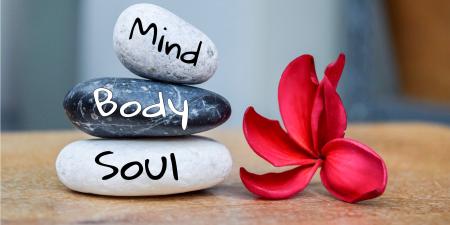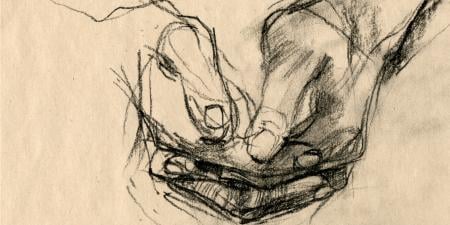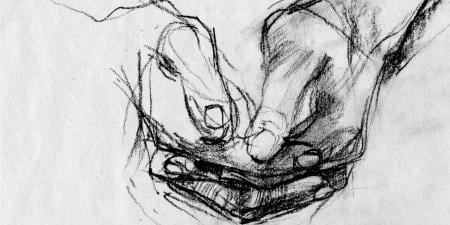The play Equus by Peter Shaffer is an example of the complex and sometimes adversarial relationship between medicine and religion. The play's main character, 17-year-old Alan Strang, is sent to psychiatrist Martin Dysart, after he gouges out the eyes of 6 horses that were previously the object of his most sincere emotions. Despite Alan's heinous actions, Dysart is not convinced that conventional medicine is the best solution for his problems. Dysart recognizes the centrality of the horses in Alan's life, the passion that they've inspired, and the simple fact that, even though Alan is living outside the bounds of convention, his life is more complete than that of the average person—even Dysart's. Throughout the play, Dysart struggles with the possibility of "curing" Alan through traditional medicine, leaving him void of the passion and purpose that make him unique.
In fact it is Alan's passion that most captivates Dysart. Alan's zeal is directed towards his gods, the horses, and, even though he savagely destroys them, the rituals and worship prior to the act are the most intense that Dysart has ever encountered. "Words like reins. Stirrup. Flank… 'Dashing his spurs against his charger's flanks!'…Even the words made me feel."1 In this passage Alan describes the thrill of horses and horseback riding, and he is clearly moved by even the simplest of words. Just hearing their pronunciation, forming them in his mouth, and speaking them aloud arouses him. Alan's devotion to the horses creates a swelling of emotion that exposes Dysart's emptiness. Dysart laments, "I wish there was one person in my life I could show. One instinctive, absolutely unbrisk person I could take to Greece…I'd say to them 'worship as many as you can see—and more will appear'."2 Dysart's lack of fulfillment is as tangible as Alan's enthusiasm, and this creates one of the most striking juxtaposition in the play. Alan has a personal religion that demands all of his soul, defines who he is, and inspires an emotional response that is not found in any other sphere of his life. His religion is composed simply of his relationship to the gods he chose to worship. No one told him whom to worship or the best way to carry out these actions. This sense of empowerment and connectedness highlights Dysart's desperate longing for something and someone to share his religion with.
Entangled with the idea of passion is the notion of a purposeful life. Worship allows people to make a connection in a world where many feel utterly alone, and it also allows someone to feel as though he has a purpose in the larger world. In Equus, Dysart is acutely aware that Alan does not have many of the traditional ties to other individuals or the general community. Instead, Alan devotes his full attention and energy to the horses who, in turn, give shape and purpose to his life. "I only know it's the core of his life. What else has he got?...He's a modern citizen for whom society doesn't exist. He lives one hour every three weeks…and after the service kneels to a slave who stands over him obviously and unthrowably his master. With my body I thee worship"!3 Based on this passage, Dysart understands that Alan is not anyone's average teenager, but he nevertheless has a purpose—a higher calling—that if disturbed by modern medicine, will be destroyed and rendered unrecoverable.
As abstractions, passion and purpose appear to be positive ideals. But when these ideas manifest violently and dangerously as they did in Alan's mutilating the horses, medicine is called in to help remedy the situation. The distinction between curing a person and stripping him of his personal identity poses a challenge for Dysart. He knows that there will be a "loss in a cure," and he must decide if those consequences are worth the potential benefits. "My achievement, however, is likely to make him a ghost…I doubt, however, with much passion! Passion, you see, can be destroyed by a doctor. It cannot be created."4 For Dysart, the only thing that is worse than Alan's loss of passion is being the person responsible for inflicting this metamorphosis. "The Normal is the indispensable, murderous god of Health, and I am his priest."5 Dysart is enslaved to his profession—his personal calling—and despite his reluctance he will use the tools of his craft to "fix" Alan.
Dysart is also torn because he knows the qualities that make us human—emotion, attraction, and pain—are all things that his remedy will quell. "To go through life and call it yours—your life—you first have to get your own pain," Dysart says. "Pain that's unique to you…that boy has known a passion more ferocious than I have felt in any second of my life. And let me tell you something: I envy it."6 Feeling—even pain—reminds us that we are human, and by seeking to numb Alan to those feelings, Dysart makes Alan less than human. Complicating the situation is that, with the medical approach, there is no guarantee that Alan will be "cured." It is certain that Alan will be radically altered, but it is unknown whether or not his problems will be solved. Dysart acknowledges that, "When Equus leaves—if he leaves at all—it will be with your intestines in his teeth. And I don't stock replacements…if you knew anything, you'd get up this minute and run from me as fast as you could."7 Again, it is the intersection of medicine and religion that troubles Dysart most. When he becomes introspective, Dysart realizes that he is just an agent for something much bigger than himself, and, while he respects the power that he wields, he knows that he does not understand all of the potential consequences: "All right—I surrender! I say it…In an ultimate sense I cannot know what I do in this place—yet I do ultimate things. Essentially I cannot know what I do—yet I do essential things. Irreversible, terminal things. I stand in the dark with a pick in my hand, striking at heads."8
The final outcome of Dysart's attempt to cure Alan Strang is not disclosed in the play. While convinced that Alan will lose his passion and his objects of worship and become a complacent and average member of society, Dysart also knows that there are benefits to being assimilated into society. By becoming an average citizen, Alan will avoid the scrutiny, pain, and lack of acceptance that comes with being outside of the norm. Dysart must make the most ethical decision that he can by recognizing that destroying horses is inappropriate and must be addressed but also simultaneously acknowledging that by "curing" Alan, he is also sacrificing the person who is Alan Strang.
References
-
Shaffer P. Equus. New York, NY: Avon Books; 1974:56.
-
Shaffer, 71.
-
Shaffer, 93.
-
Shaffer, 123-124.
-
Shaffer, 74.
-
Shaffer, 94.
-
Shaffer, 123.
-
Shaffer, 125.



